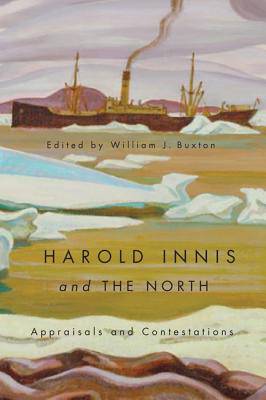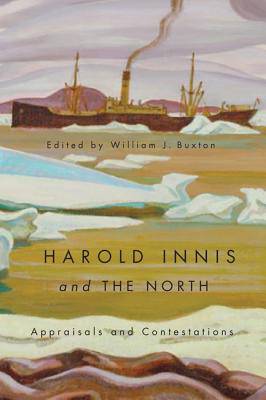
- Retrait gratuit dans votre magasin Club
- 7.000.000 titres dans notre catalogue
- Payer en toute sécurité
- Toujours un magasin près de chez vous
- Retrait gratuit dans votre magasin Club
- 7.000.0000 titres dans notre catalogue
- Payer en toute sécurité
- Toujours un magasin près de chez vous
177,45 €
+ 354 points
Description
Harold Innis is widely understood as the proponent of the Laurentian school of historiography, which mapped Canadian development along an East-West axis. Harold Innis and the North turns the axis North-South by examining Innis's intense and abiding interest in the North, and providing new perspectives on this seminal figure in Canadian political economy and communication studies. This collection reveals that Innis's advocacy of the North was closely bound up with his vision of northern Canada as the site of a second industrial revolution based on mining, hydro-electric power, pulp and paper, and enabled by new forms of transportation. Long preoccupied with Canada's coming of age as a balanced and integrated industrial nation-state, Innis grappled with the same issues about the North in the Canadian nation that we are dealing with today. Chapters explore the breadth of Innis's northern activities, including his early studies of the fur trade, his biography of eighteenth-century explorer and cartographer Peter Pond, his review essays on the North for the Canadian Historical Review, his leadership of the Rockefeller-sponsored Arctic Survey, and his trip to the Soviet Union. Harold Innis and the North crafts a new narrative about the nature and scope of Innis's intellectual project and provides a unique appreciation of his multi-faceted professional identity. Contributors include Sergei Arkhipov (North-Ossetian State University and NGO Vladikavkaz Institute of Economics) Jeffrey Brison (Queens), George Colpitts (Calgary), Matthew Evenden (UBC), Barry Gough (Churchill College, Cambridge and Kings College, London), Paul Heyer (Wilfrid Laurier), Jim Mochoruk (North Dakota), Liza Piper (Alberta), Shirley Roburn (Concordia), Peter van Wyck (Concordia), Jeff Webb (Memorial).
Spécifications
Parties prenantes
- Auteur(s) :
- Editeur:
Contenu
- Nombre de pages :
- 432
- Langue:
- Anglais
Caractéristiques
- EAN:
- 9780773541641
- Date de parution :
- 26-08-13
- Format:
- Livre relié
- Format numérique:
- Genaaid
- Dimensions :
- 150 mm x 231 mm
- Poids :
- 748 g

Les avis
Nous publions uniquement les avis qui respectent les conditions requises. Consultez nos conditions pour les avis.






